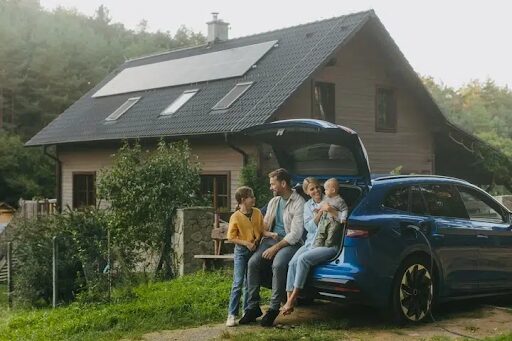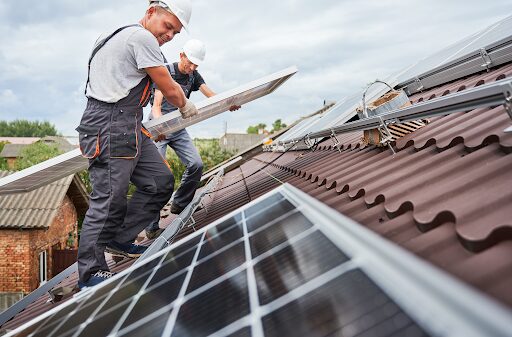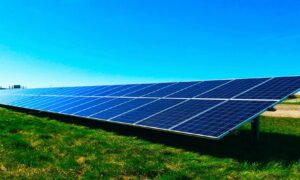With energy bills soaring and pressure mounting to meet net-zero goals, UK homes and businesses are embracing solar panels and battery storage as part of a more resilient power system. Upvolt Energy is helping accelerate this transformation by offering end-to-end clean energy solutions designed for modern homes and smart businesses.
The UK Energy Landscape Is Changing—Fast
The UK’s electricity grid is facing an era-defining transition. In 2024 alone, households saw energy costs fluctuate unpredictably, while grid infrastructure faced increased pressure from climate-induced demand spikes. As a result, more consumers are questioning the reliability of the traditional energy model.
In response, a quiet revolution is gaining momentum across the country. The adoption of solar panels in Oxfordshire, Kent, Yorkshire, and beyond is accelerating. Homeowners and businesses are installing battery storage systems, pairing them with solar PV, and integrating them into what is being called the smart grid.
What Exactly Is a Smart Grid?
A smart grid is an energy network that uses digital technologies to monitor and manage electricity production, distribution, and consumption. Unlike the traditional grid, which relies on centralised power stations, smart grids accommodate decentralised generation like residential solar systems and community wind turbines.
Smart grids empower users to store energy, optimise usage, and even sell surplus power back to the grid. This is especially valuable when combined with solar panels and battery storage. Energy can be captured during the day and used after sunset or during peak tariff hours.
Why Solar Panels and Battery Storage Are Key to Grid Resilience
In 2024, approximately 191,000 new solar systems were installed across the UK, representing a modest drop compared to the 197,000 installations recorded in 2023.
But solar panels alone only generate electricity during daylight hours. That’s where battery storage systems become essential. They store excess power and let users operate independently during grid outages, reduce reliance on expensive peak-time electricity, and increase overall energy efficiency.
According to Upvolt Energy, combining these technologies can cut a home’s energy bills by up to 60% annually while significantly reducing carbon emissions. Upvolt’s smart battery integration is designed to maximise self-consumption and enable true energy independence.
Smart Homes and Smart Businesses: Integration at Work
The smart grid isn’t just about generating power—it’s about using it intelligently. Many UK homes and businesses are now integrating smart home energy management systems that allow them to:
- Monitor real-time energy usage
- Automate high-consumption appliances during off-peak hours
- Track storage capacity and solar generation
- Integrate EV chargers for even greater sustainability
Businesses, especially those with large facilities, benefit from commercial solar solutions paired with automated demand-side response systems that adjust operations based on grid demand and pricing.
Emerging Tech Enhancing the Smart Grid
The evolution of the smart grid is tied closely to energy tech innovation. Beyond battery storage and rooftop solar, technologies like vehicle-to-grid (V2G) systems, AI-powered energy forecasting, and blockchain-based energy trading platforms are gaining traction.
V2G technology allows electric vehicles to act as mobile energy storage units, discharging power back to homes or the grid when needed.
Artificial Intelligence helps predict peak demand, optimise storage use, and even automate energy trading based on real-time grid fluctuations.
Blockchain systems are being trialled to facilitate secure, transparent energy transactions between users, bypassing traditional utilities.
Upvolt Energy is already exploring these integrations, offering future-ready systems that allow customers to scale with emerging innovations.

What Businesses Should Consider Before Going Solar?
For businesses considering the switch to commercial solar and battery integration, it’s essential to evaluate several factors:
- Energy usage profile: Businesses with high daytime energy usage (e.g., warehouses and retail chains) benefit most.
- Roof or land space: Adequate space and structural suitability are necessary for installation.
- Load balancing needs: Fluctuating energy demands require intelligent energy management systems.
- Regulatory compliance: Knowledge of tax reliefs, grid connection rules, and export tariffs is key.
Upvolt Energy supports SMEs with tailored consultations, performance modelling, and ongoing maintenance to ensure maximum return on investment, often in under five years.
What’s Driving This Shift?
A combination of factors is accelerating solar and battery adoption:
- Skyrocketing energy prices: In early 2025, UK wholesale electricity prices reached record highs due to global fuel volatility.
- Government incentives: Programs like the Smart Export Guarantee (SEG) and 0% VAT on solar installations lower upfront costs.
- Net-zero commitments: Environmental responsibility is now a practical and moral imperative for many.
This cultural and financial shift is especially evident in counties like Oxfordshire, where solar adoption rates continue to rise sharply.
Looking Ahead: The Future of Smart Energy in the UK
As the UK’s energy infrastructure modernises, smart energy solutions will become a fixture of both homes and businesses. Analysts predict that by 2030, over 40% of UK households will operate decentralised energy systems.
With ongoing advances in AI forecasting, peer-to-peer trading, and V2G tech, the smart grid is poised to become even more intelligent, flexible, and user-driven.
Empowering the Shift to a Smarter Grid
From solar panels on residential rooftops to battery storage systems powering business operations, the UK’s energy revolution is in full swing. With trusted providers like Upvolt Energy leading the charge, homeowners and businesses are better equipped than ever to take control of their energy use.
This isn’t just about cost-cutting. It’s about resilience, sustainability, and ensuring a future where energy is cleaner, smarter, and more accessible to all.





























